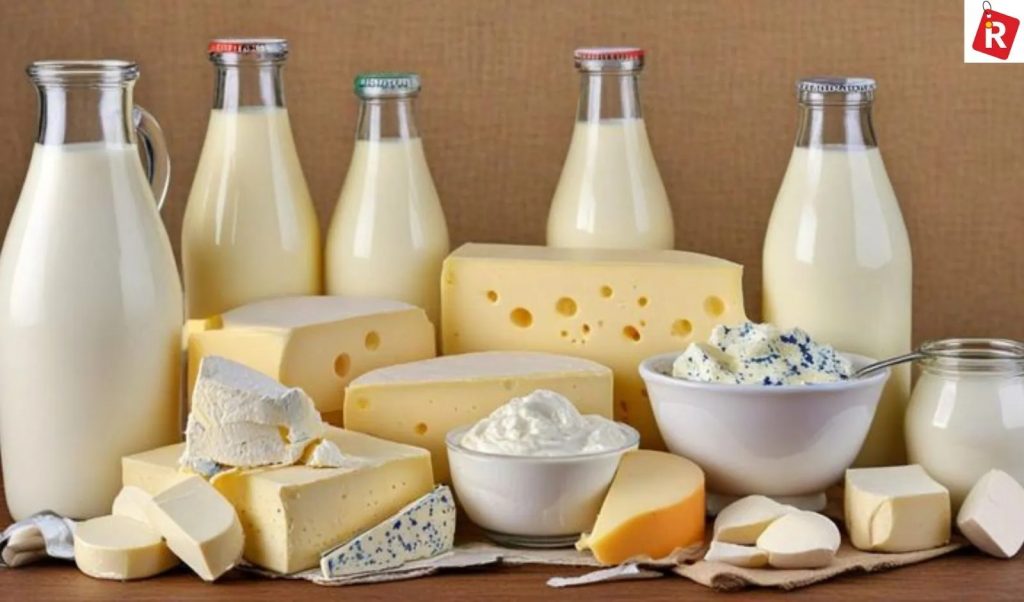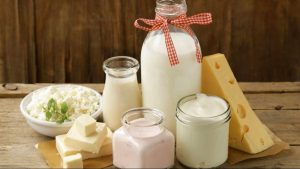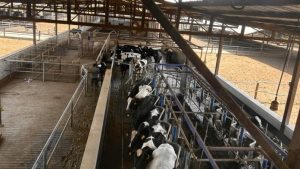
Gone are the days when price was the sole deciding factor in the dairy aisle. Today, a new wave of health-conscious consumers is driving a surge in demand for premium dairy brands. The reasons behind this trend are multi-faceted, pertaining to characteristics of premium dairy as a sector in itself, the factors influencing consumer choices, as well as the impact this movement is having on the broader market and industries as whole.
The Rise of Health-Conscious Consumers
Modern consumers are increasingly focused on health and wellness. A 2023 NielsenIQ global survey found that 88 percent of consumers globally say they are willing to pay more for healthy products. This awareness extends to their dairy product choices. They seek options perceived as healthier, with a focus on natural ingredients and minimal processing.
Premium dairy products aren’t just a marketing gimmick. They often boast distinct characteristics: organic, grass-fed, non-GMO, and hormone-free options. For instance, organic dairy is produced without synthetic pesticides or fertilizers according to USDA National Organic Program standards, and organic milk sales in the United States have grown steadily, reaching $2.3 billion in 2022. Grass-fed dairy comes from cows raised on pastures, leading to milk with potentially higher levels of omega-3 fatty acids and conjugated linoleic acid (CLA), according to a 2016 study published in the Journal of Dairy Science. Furthermore, non-GMO and hormone-free labels assure consumers that their dairy choices align with their values, with the non-GMO dairy market expected to reach $14.2 billion by 2027.
The Role of Taste and Quality in Consumer Decision-Making
While health is a priority, taste remains a significant factor. A 2022 study by the International Journal of Dairy Technology found that taste was the most important factor influencing consumer preference for yogurt, followed by health benefits. Premium dairy brands often deliver superior taste and texture, a result of careful sourcing and processing methods. Additionally, consumers value product consistency and trust the quality assurance practices employed by premium brands.
The Environmental and Ethical Considerations
Sustainability is playing an increasingly important role in consumer choices. A 2023 Cone Communications Sustainability Survey revealed that 83 percent of global consumers now say they consider a company’s social and environmental commitments when making a purchase. Premium dairy brands are highlighting their commitment to environmentally friendly practices, such as responsible land management, reduced water usage, and renewable energy sources. Ethical treatment of animals also resonates with consumers. The American Society for the Prevention of Cruelty to Animals (ASPCA) reports that 80 percent of millennials are willing to pay more for products that are produced humanely. Premium brands that prioritize animal welfare, such as providing cows with access to pasture, are finding favor.
The Influence of Branding and Marketing
Effective branding plays a crucial role in the premium dairy market. Brands communicate their unique selling points – organic certification, grass-fed practices, etc. – through clear messaging and packaging that emphasizes quality and ethical production. Premium dairy products come with a higher price tag due to the increased costs associated with natural farming methodologies, ethical animal treatment, and specialized processing. For instance, organic milk can cost up to 50 percent more than conventional milk. However, consumers are increasingly willing to pay a premium for products perceived to offer greater value – better taste, health benefits, and a clear conscience.
The Impact of Premium Dairy on the Broader Market
The global market for premium dairy products is expected to reach $332.4 billion by 2027. This trend is influencing the broader market as standard dairy producers may adapt by offering more natural or ethically sourced options to remain competitive. In India, the rise of premium dairy is evident with brands focusing on organic milk, A2 milk (derived from specific breeds like indigenous Indian cow breeds), and other health-centric products. Indian companies are emphasizing traditional practices combined with modern sustainability efforts to attract the health-conscious segment.
Challenges and Future Prospects for Premium Dairy
Despite its growth, the premium dairy sector faces challenges, including maintaining consistent supply chains to meet growing demand and balancing ethical and sustainable practices with affordability. However, the future looks bright with potential for innovations in areas like alternative packaging, sustainable and biodegradable solutions to reduce environmental impact, animal welfare initiatives such as wearable trackers to monitor cow health and well-being, and new product development exploring plant-based alternatives or dairy products with added functional benefits like probiotics.
Consumer Testimonials: Why They Choose Premium Dairy
Real people are driving this trend. For instance, many Indian consumers have switched to A2 milk. Foodies who prioritize taste find the difference in taste between organic, grass-fed butter, and regular butter incredible and worth the extra cost. Ethically-conscious consumers choose brands committed to animal welfare, emphasizing the importance of humane treatment of cows. These testimonials reveal a shift in priorities, with many choosing premium dairy for the taste, perceived health benefits, and the assurance that they are supporting ethical and sustainable practices.
Conclusion
The rising demand for premium dairy reflects a significant shift in consumer priorities toward health, sustainability, and ethical practices. This movement is transforming the dairy industry, encouraging innovation and higher standards. In India, it offers a unique opportunity to revitalize traditional practices, blending them with modern sustainability efforts. As consumers continue to seek quality and transparency, premium dairy brands are poised to lead this change, promoting a more informed and responsible marketplace.
Looking ahead, the premium dairy sector holds immense potential to influence broader agricultural practices and consumer habits. By embracing innovation and maintaining a steadfast commitment to quality and ethics, these brands can shape a healthier, more sustainable future. This journey towards excellence is not just about producing superior dairy products; it’s about creating a legacy of mindful consumption and responsible production that benefits everyone—from farmers to consumers and the planet we all share.
Authored By
Rajesh Degala, VP Sales, Sid’s Farm
You can now read the most important #news on #eDairyNews #Whatsapp channels!!!
🇮🇳 eDairy News ÍNDIA: https://whatsapp.com/channel/0029VaPidCcGpLHImBQk6x1F

















